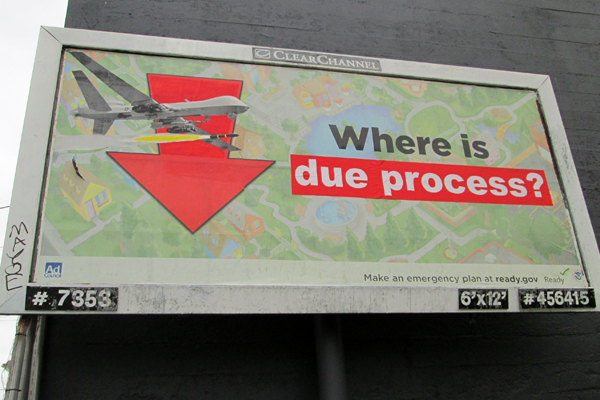Gonsalves: The danger of droning
Allow me to kick off the new year by clarifying a wish I made in my end-of-the-year column earlier this week.
As reported in the Times on Tuesday, Joint Base Cape Cod has been selected by the Federal Aviation Administration to be one of six test sites across the country to help figure out how to "safely" integrate drones into the nation's airspace for commercial use.
I wished for U.S. Sen. Edward Markey, D-Mass., to file legislation with an eye toward privacy safeguards as we enter this brave new world.
As a member of the U.S. Senate Commerce, Science and Transportation Committee calling for a "Fourth Amendment for the 21st century," Markey already has filed legislation seeking federal privacy protections. In early November, Markey introduced the Drone Aircraft Privacy and Transparency Act.
Somehow I missed that, amid all the futuristic happy talk PR and the predictable "it will create jobs" mantra now used to justify any and every profit-making scheme under the sun — from casinos to the proposed Lowe's Home Improvement Center in Dennis.
Locally, all the usual suspects are giddy over the economic prospects, and understandably so.
The base testing site, which will be for the civilian use of drones, could bring an estimated 1,000 new jobs and a $385 million jolt to the Bay State economy between 2015 and 2017, according to estimates provided as part of the application.
State Rep. Randy Hunt, R-Sandwich, told the Times he sees multiplier effects that go beyond the potential economic benefits of drone-related jobs. The employees of visiting companies will be staying in local hotels and eating at local restaurants, he predicted.
(Remember this economy-boosting job talk the next time some pol says how big, bad government doesn't create wealth or jobs. This drone business is just the most recent market created in the wake of taxpayer-funded military R&D before it's handed over to private industry to turn profits).
"Irrespective of where you may stand on drones or uses of drones, they're going to be used by the military and for commercial purposes," Hunt told Times reporter George Brennan.
That's one of the things I love about Hunt — his pragmatism, even if some of us reject the economic determinism implied in that statement. The "invisible hand" of the market is human, not to be confused with the finger of God.
Still, practically speaking, he's right on target. Drones buzzing around the friendly skies are the future. So it's heartening to learn in a follow-up story in Wednesday's Times that a bill has been introduced on Beacon Hill by state Sen. Robert Hedlund, R-Weymouth, and state Rep. Colleen Garry, D-Dracut, that would ban the use of drones equipped with weapons and set limits for how they are used by law enforcement.
Also, it should be noted the FAA has issued privacy guidelines for the test sites."It requires operators to comply with all local, state and federal laws concerning privacy and civil liberties," Michael Huerta, administrator of the FAA, said in a conference call with reporters Monday.
"We are also requiring test-site operators to create a privacy policy that is available to the public, and they must require anyone operating unmanned aircraft at test sites to have a written plan for how they will use and retain any test data that might be acquired," Huerta added.
That's a nice start. But Senator Markey makes an important point in a statement his office sent me earlier this week.
"While the FAA is right to require privacy plans for drone operations, a patchwork of plans without a federal law is simply not enough to ensure the strongest safeguards are in place before tens of thousands of drones take to the skies. A state-by-state plan makes no sense," Markey said in a prepared statement.
Noting that "the FAA's plan falls far short of putting in place the necessary privacy protections," Markey suggests four specific requirements as part of the Drone Aircraft Privacy and Transparency Act:
- Prohibit the FAA from issuing drone licenses unless the license application includes a data collection statement that explains who will operate the drone, where the drone will be flown, what kind of data will be collected, how that data will be used, whether the information will be sold to third parties, and the period for which the information will be retained.
- Require law enforcement agencies and their contractors and subcontractors to include an additional data-minimization statement that explains how they will minimize the collection and retention of data unrelated to the investigation of a crime.
- Require that any surveillance involving drones by law enforcement agencies will require a warrant or extreme exigent circumstances.
- Require the FAA to create a publicly available website that lists all approved licenses and includes the data-collection and data-minimization statements, any data security breaches suffered by a licensee, and the times and locations of drone flights.
Apologies to the senator for being distracted by the "drones are so cool" PR show. I resolve to not let this fly under my radar again.

No comments:
Post a Comment